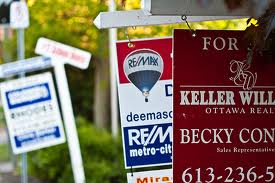 The Federal Housing Administration (FHA), a government agency that has been the most instrumental in supporting the economic recovery of the housing market in the United States, is in dire straits from a financial point of view. A recent audit revealed that the agency is ruefully under-capitalized to take on the significant amounts of risk it routinely accepts as a mortgage guarantor and investor for many American borrowers.
The Federal Housing Administration (FHA), a government agency that has been the most instrumental in supporting the economic recovery of the housing market in the United States, is in dire straits from a financial point of view. A recent audit revealed that the agency is ruefully under-capitalized to take on the significant amounts of risk it routinely accepts as a mortgage guarantor and investor for many American borrowers.
One of the main culprits in the FHA’s financial downturns has been identified: No-money down programs that enable sellers to provide down-payment assistance to otherwise unqualified buyers. The funds for these programs came from non-profit organizations that in many cases collected money on behalf of builders that was ultimately gifted to low-income home buyers.
Too Good To Be True
At the end of 2008, Congress passed a bill that effectively prevented the FHA from becoming involved in no-money down programs. An investigation revealed that these programs, which FHA officials had strongly suggested would eventually come back to haunt them, were often ripe for abuse and filled with underwriting issues. One of the problems cited was that the non-profit groups that sought the no-money down certificates from home builders often collected fees to their advantage.
Another reason the FHA and its parent regulator, the Department of Housing and Urban Development (HUD), tried to convince Congress to eliminate these programs was the amount of risk the agency was taking on by putting low-income borrowers in homes they would otherwise be unable to afford. Problems were detected as early as 2006, but Congress was unlikely to be sympathetic while in the midst of the housing bubble.
When Congress finally got around to banning no-money down mortgages from becoming part of the FHA mortgage portfolio, the damage had been done. No-money down mortgages now account for 13 percent of the FHA loans that are in serious delinquency.
Looking in Hindsight
The audit that reported the FHA’s exposure to these no-money down mortgages gone wrong indicates that the net deficit from these risky home loans stands at $13.5 billion. If the no-money down program had never been implemented at the FHA, there would not be a deficit; instead, the agency’s financial situation would be in the black by $1.77 billion.
Even though the no-money down programs were already hurting the FHA in early 2008, legislators were pressured by the real estate and home builder industries to keep them afloat. The argument was that since the housing bubble had already burst, eliminating the programs would cause further strain to the housing market.



